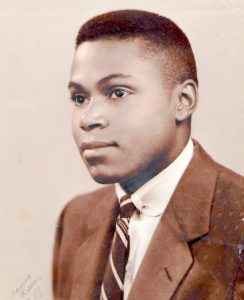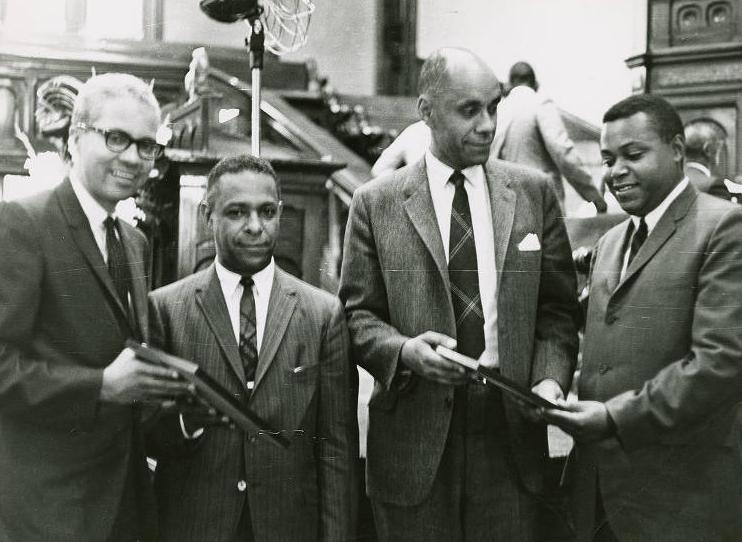
Photo info ...
Credit: Judge Tanya WaltonView Source
(June 24, 1936-Feb. 19, 1996). Born in rural Lampkin, Mississippi, Walton was educated in Indianapolis after his family of sharecroppers migrated to Indiana for factory work in 1941. Following his junior year at , he was awarded a Ford Foundation Scholarship at age 15 to attend Morehouse College, in Atlanta, Georgia. This program allowed him to receive his high school diploma following his freshman year in college. As a result, he graduated from Crispus Attucks in 1952, earned a Bachelor of Arts from Morehouse College in 1956 (magna cum laude), and a Juris Doctorate degree from Indiana University Law School in May 1959, at the age of 22.
Upon admission to the Indiana bar, Walton worked as a deputy prosecuting attorney and Marion County attorney. He later entered private practice with the firm of Mance, Kuykendall and Chavis, which allowed him to study under prominent African American legal giants such as Judge Mercer Mance, Judge Rufus C. Kuykendall, and Patrick Chavis Jr. Their law office was located in the historic on .
Although he practiced law in the areas of civil rights, contact, and other areas, his passion was criminal defense work. There were pervasive racial disparities in the criminal justice system, and Walton was determined to protect the constitutional rights of the accused, especially members of the Black community. His inherent street smarts combined with a brilliant legal mind made for a formidable combination in court. He was a gifted litigator known for his superior memory and remarkable work ethic.

In the early 1960s, racism and discriminatory practices also were rampant in Indianapolis housing, education, and employment opportunities. Realizing the only way to bring change was to have political power, Walton became active in the Marion County Democratic Party. He served as precinct committeeman, ward chairman, treasurer of the Marion County Young Democrats, and as County Voter Registration chairman.
In 1964, he was elected to and served as a state representative for Marion County, sponsoring a number of bills dealing with criminal justice reform, public education, and housing. He authored legislation to penalize discrimination in the sale and/or rental of housing and legislation to adopt in school lunch programs.
Walton maintained his private practice and in 1969 began a 26-year legal collaboration with prominent civil rights attorney John O. Moss, with the firms of Mance, Moss and Walton; Moss and Walton; and later Walton and Pratt. In 1986, he served as the interim Center Township Trustee, following the death of Trustee stalwart, . During his brief tenure in this position, Walton initiated new standards for providing assistance to the poor by introducing clothing vouchers and streamlining the emergency assistance program.
Walton was a life member of the and his fraternity, Kappa Alpha Psi. He was a past president of the (1975) and chaired several committees in the National Bar Association. He was married to his Spelman College classmate, Joan Blackshear Walton for 40 years. Walton recognized the challenges that Black attorneys faced as they entered the legal profession, and he was a strong advocate for mentorship, including several family members who became lawyers.

Help improve this entry
Contribute information, offer corrections, suggest images.
You can also recommend new entries related to this topic.